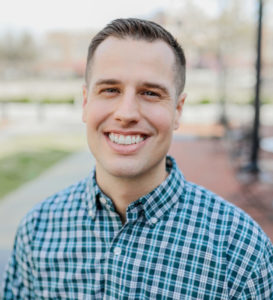
Women Every Christian Should Know: Helga Henry
Editors note: A version of this post will be published in a forthcoming issue of Bibliotheca Sacra as “Carl Henry’s ‘Shatzie’: The Importance of Helga Henry as Wife, Scholar, and Friend.” Adapted with permission from Bibliotheca Sacra.
When Carl F. H. Henry received an honorary doctorate from Wheaton College in 1968, he was quick to acknowledge an integral partner in his work—his wife, Helga. In the Christianity Today article leading up to the event, Henry wrote, “There’ll be an uneasy feeling, however, that someone, somewhere, is a far more meritorious reaper in the harvest of faith. My literarian wife, Helga, who has had the last word more often than readers know, ought actually to share these colorful hoods.”[1] Though Carl F. H. Henry is quickly recalled by historians of American Protestantism, his wife Helga has for too long remained in the shadows. Albert Mohler notes that, “Without Carl Henry, the story of evangelicalism would be a very different story.”[2] This is true. It is also true that without Helga Henry, the story of Carl Henry would be a very different story as well.Helga deserves to be remembered alongside other evangelical women of her era who were not only essential to their husbands’ ministries, but who were significant writers and leaders in their own right. Click To Tweet Helga deserves to be remembered alongside other evangelical women of her era who were not only essential to their husbands’ ministries, but who were significant writers and leaders in their own right such as Elisabeth Elliot, Edith Schaeffer, and Ruth Graham.
Helga was born in 1915 in Cameroon to a missionary family. Ten years later, the family moved to Chicago so that Helga’s father could pastor a church in Chicago. Helga began college at Wheaton a few years later in 1932. It was at Wheaton College where Helga met her future husband, Carl F. H. Henry. Inadvertently, she was a student of his in a typing class, a course he was well-suited to teach with his journalism background. He was captivated by Helga immediately. After a series of moves, transitions, and graduations, the couple married on August 17, 1940 in the chapel of Northern Baptist Theological Seminary.
The Henrys enjoyed a long and fruitful marriage and ministry. Helga’s humor and wit meshed with Carl’s headier persona, and they functioned as a wonderful team serving the kingdom of God. Still, their lives were not free of difficulty. They lost their son Paul in 1993 to brain cancer and Helga suffered from trigeminal neuralgia in her later years. But they remained a joyful and strong couple until Carl’s death in 2003. Helga passed the following year.
Helga the Wife and Mother
Helga was a model wife and mother to Carl and their children, Carol and Paul. While Carl was traversing the skies, Helga was holding the fort—so much so that Carl’s schedule and production would have been virtually impossible if it wasn’t for Helga’s assistance on the home front. She embraced this calling with strength, consistency, and joy. There were hard days, and her letters to Carl often expressed a sense of exhaustion and readiness for his return. But they never communicated bitterness toward his absences.
But Helga supported Carl in more than domestic assistance. She was a gifted writer and possessed a strong biblical and theological aptitude. Carl’s scholarship—impressive as his mind was—bore the marks of Helga’s aid, especially as seen in his efforts at Christianity Today and in his 3,000-page God, Revelation and Authority. He did not shy away from highlighting Helga’s help and shined the light on her frequently in numerous venues. Without her salaried editorial help, Carl might not have committed himself to Christianity Today full-time and instead remained at Fuller Theological Seminary. Without her expertise in German and her ability to help Carl package the dense concepts of God, Revelation and Authority into (somewhat) readable language, he might have struggled to complete the daunting six-volume set.
Helga the Scholar
But Helga’s scholarly abilities were not used only in the service of her husband; she was an able writer and teacher who had a respectable resume herself. One publication in 1970 recognized this when it wrote that “like her writer-editor-professor husband, [Helga] has a by-line of her own.”[3] She served numerous institutions in both administration and teaching and contributed to campus spiritual life through counseling and leading devotions. She was recruited by schools across the nation and eventually served as Eastern Baptist Theological Seminary’s first female trustee.
Helga wrote or contributed to three books. Her first, Mission on Main Street, told the story of the Union Rescue Mission in Los Angeles. She translated Paulus Sharpff’s History of Evangelism: Three Hundred Years of Evangelism in Germany, Great Britain, and the United States of America. However, her crowning achievement did not come until 1999, just five years before her death. In Cameroon on a Clear Day: A Pioneer Missionary in Colonial Africa, Helga shared her father’s missionary story with the world. It was a multi-disciplinary volume that addressed aspects of colonial history, missiology, and sociology. The book was built on research conducted institutions such as The School of Oriental and African Studies at the University of London, Princeton University, and the British Museum. It garnered praise from the scholarly community; one reviewer thought that the book was “an account that needs to be taken seriously as respectable scholarship and as a careful presentation of mission history.”[4] Cameroon on a Clear Day is the best demonstration of Helga’s writing gift (she was every bit the writer as her husband, and perhaps more) and her ability to craft a compelling story in concise and captivating prose.
Helga Bender Henry was strong, smart, and witty. She was a lively wife, mother, scholar, and friend. She was the ideal counterpart to Carl F. H. Henry, and he leaned upon her for both personal and professional support. Similar to Martin Luther and his “Katy,” Carl Henry and his “Shatzie” (his nickname for Helga, meaning “my darling” or “my love”) served the evangelical world through writing, counsel, and friendship.[5] As their friend Kenneth Kantzer remembered, “It was a mutual service, a mutual making of sacrifices, and a mutually loving husband and wife team, working in harmony together daily.”[6]
Endnotes
[1] Carl F. H. Henry, “Editor’s Note,” Christianity Today (June 7, 1968): 2.
[2] R. Albert Mohler Jr., “The Indispensable Evangelical,” in Essential Evangelicalism: The Enduring Influence of Carl F. H. Henry, eds. Matthew J. Hall and Owen Strachan (Wheaton: Crossway, 2015), 39.
[3] Jo-Ann Price, “Who’s Whose: Can You Match the Wives with their Husbands?” Christian Herald (January 1970): 22.
[4] Dean S. Gilliland, review of Cameroon on a Clear Day: A Pioneer Missionary in Colonial Africa, by Helga Bender Henry, International Bulletin of Missionary Research 25 (2001): 93.
[5] Gregory Alan Thornbury, Recovering Classic Evangelicalism: Applying the Wisdom and Vision of Carl F. H. Henry (Wheaton: Crossway, 2013), 26.
[6] Kenneth Kantzer, “Carl Ferdinand Howard Henry: An Appreciation,” in God and Culture: Essays in Honor of Carl F. H. Henry, eds. D. A. Carson and John Woodbridge (Grand Rapids: Eerdmans, 1993), 375.

